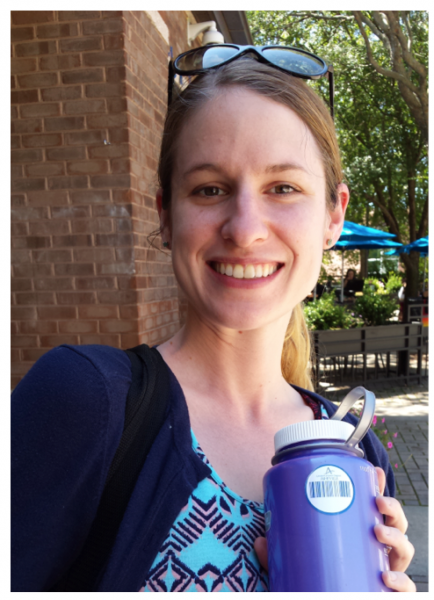Cassidy Fowler
Sports Staff Writer
[email protected]
Nutrition is everything, according to UNC Asheville’s Laura Sexton, a dietitian and registered nutritionist.
“But you have to be sure you’re nourishing your body with the right foods,” Sexton said.
Sexton said she works with students and staff on campus, but she spends the majority of her time working with athletes from the many sports teams on campus.
“I meet with athletes to discuss their dietary habits and suggest simple adjustments to improve their abilities,” Sexton said.
Research conducted by MedlinePlus, a website operated by the National Institute of Health, shows nutrition can help enhance athletic performance.
The study found you are more likely to be tired and perform poorly during sports when you do not get enough calories, carbohydrates, fluids, vitamins, minerals and protein.
Sexton said her job on campus is to make sure athletes are properly fueled with each of those requirements.
“Food is the best source for fuel in the body. Eating the right foods, at the right times and the right amounts will make all the difference in athletic ability and overall health,” Sexton said.
UNCA women’s soccer player Gabrielle Iorio said she knows how nutrition affects her body all too well.

“When I don’t eat breakfast before morning practices I feel much more tired and have no energy,” said Iorio, a freshman student. “I always play much better when I eat a little something in the morning before practice.”
As a midfielder, Iorio said she does a lot of running in practices and games. Sexton said high endurance athletes like soccer players and distance runners should consume more carbohydrates to properly fuel their bodies with energy.
Michelle Demko head coach for women’s soccer said she can notice when athletes have not eaten breakfast.
“We practice in the morning at 7 a.m. Players who don’t eat before training feel sluggish or have very little to no energy, it’s incredibly important athletes are fueling their bodies so they can sustain the physical demand of soccer. If they do otherwise, we have to pull them from training,” Demko said.
According to the Center for Best Practices, breakfast helps students reach higher levels of achievement, concentrate better and be more alert, as it provides you with the energy you need during the day.
“If you don’t eat breakfast, you aren’t likely to get all of the nutrients your body needs for the day,” Sexton said.
As UNCA’s sustainability specialist, Sexton also emphasizes making sure you eat the best quality food, such as fresh market vegetables.
“I believe that everyone should cook at home. So I try to motivate the athletes to do so if they have a kitchen available,” Sexton said.
Sexton said she encourages resident students to eat healthily at the campus restaurant and cafe options.
Sexton said UNCA offers many nutritious options that make attaining nutrition goals easy. However, athletes need to make sure they are eating enough.
“A typical calorie intake varies depending on sport, gender and also overall goals,” Sexton said.
Sexton said certain sports require athletes to eat larger amounts more often than others. For example, a soccer player who is constantly running may need to consume more food than a dancer, even though they are both engaging in rigorous activity.
“Gender plays a huge role in what athletes need to eat in order to maintain a healthy lifestyle,” Sexton said.
Sexton said calorie needs vary for athletes based on their height, weight and the amount they exercise.
Athletes are also known for having vitamin deficiencies that may need to be supplemented. For example, Sexton said female athletes are often low in iron and should be taking a supplement regularly to maintain balance.
“The amount of calories an athlete needs to be eating also depends on their personal goals,” Sexton said. “Sometimes athletes want to lose weight, sometimes they want to gain and sometimes they would enjoy maintaining the weight they’re at.”
Sexton said runners often want to lose weight in order to feel like they can run faster; however, they have to make sure they’re not losing muscle mass while they lose the weight. This goes for any athlete.
“If you don’t eat the right foods or you cut back on your calorie intake too much, you put yourself at risk for muscle deterioration, which no athlete wants,” Sexton said. “Diet is all about making sure you fuel your body and balancing your needs.”
Demko said she believes in not only teaching her athletes about nutrition, but showing them through team meals.
“When we feed our team, I think it’s a good opportunity to help them learn more about nutrition,” Demko said. “Sandwiches are on wheat bread and we tend to order grilled foods. Additionally, we have them eat within 30 minutes of finishing a game so we can help them replenish nutrients lost and help with their overall recovery.”
Iorio said she enjoys how Demko encourages good nutrition both before and after practices and games.
“My coach pushes recovery, so eating something after a tough practice or game is huge,” Iorio said. “She will always supply us with peanut butter sandwiches and protein shakes after games.”
Sexton said athletes need to take care of themselves in order to succeed in their sports and the first step to success is a nutritious lifestyle.
“If I didn’t have great nutrition being active and staying healthy would be extremely difficult,” Iorio said. “Nutrition is a lifestyle and it allows me to do the thing I have the most passion for.”



















